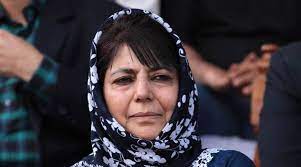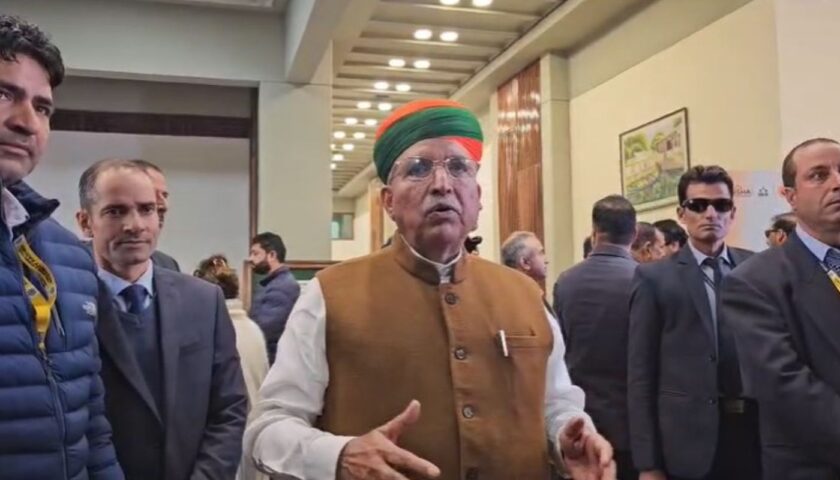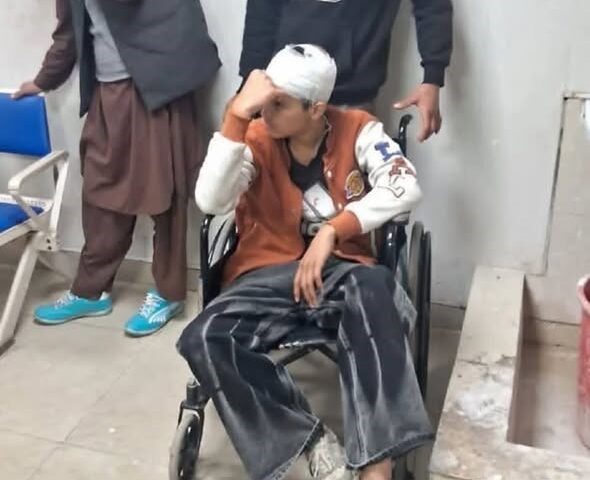The Jammu & Kashmir Peoples Democratic Party (JKPDP) President and former Chief Minister today raised serious concerns regarding the “home for homeless” policy announced by the government recently.
Addressing a press conference at the party headquarters in Srinagar, Mufti said that the administration was importing slums and poverty into the region under the pretext of providing housing to homeless individuals, which she believes is an attempt to alter the demographic composition of Jammu & Kashmir.
Mufti expressed doubts and questioned the identity of the alleged 199,000 landless people in Jammu and Kashmir. Citing figures presented by the central government to Parliament, which indicate that there are only 19,000 homeless families in the region, she emphasised the need for clarification on this disparity.
It is important to mention that earlier this week, Lieutenant Governor Manoj Sinha announced the allocation of 5 Marla plots to landless families for the construction of houses under the Pradhan Mantri Awas Yojna (PMAY).
Mufti raised concerns that this initiative might be driven by a desire to increase the BJP vote bank, thus leading to a change in the demographic makeup of Jammu and Kashmir.
She also questioned why Kashmiri Pandits, who have been living in one-room accommodations in Jammu for the past three decades, were not provided with land.
Asserting that the government was treating Jammu and Kashmir as a “war booty” and disregarding the well-being of its people, Mufti expressed worry about the region being transformed into a slum instead of focusing on its overall development. She acknowledged the growing realisation among the people of Jammu regarding the potential consequences of these policies, warning that the negative effects would manifest in Jammu before affecting Kashmir. Mufti termed the policy a provocation to the local population.
Encouraging the people of Jammu and Kashmir to follow the example set by Ladakh, Mufti commended the region’s residents for demanding the inclusion of land rights and jobs in the Sixth Schedule. She expressed admiration for their decision to launch a non-cooperation movement from July 15, opposing any outside investments in tourism, and pledged support for the people of Ladakh.
Mufti termed the various actions taken by the central government in Jammu and Kashmir following the abrogation of Article 370 as an attempt to diminish the presence of its inhabitants. She expressed surprise at the timing of the order concerning landless individuals, coinciding with the Supreme Court’s consideration of petitions challenging the revocation of Article 370.
Mufti called upon the people of Kashmir and Jammu to unite and resist these measures, much like the people of Ladakh.




